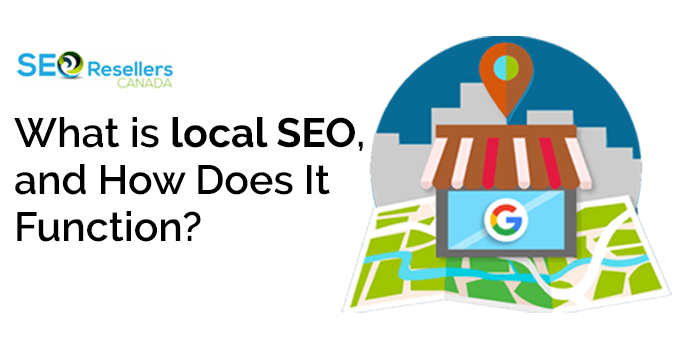Artificial Intelligence (AI) is something every individual, especially those familiar with technological advancements, is familiar with. However, in recent years, the use of AI has increased significantly. For instance, platforms like ChatGPT have gained traction among SEO and copy writing experts.
Although many might question AI’s capability to produce high-quality content, it is vital to note that technology is evolving exponentially. This means there will be an explosion in the amount of experts relying on AI-integrated tools.
If you wish to make the most out of this new shift, understanding AI’s trajectory is vital. And with this blog, we aim to do the same. Let’s decode the tangible benefits that AI may present for the future of SEO strategy.
1- The future of search engines after AI
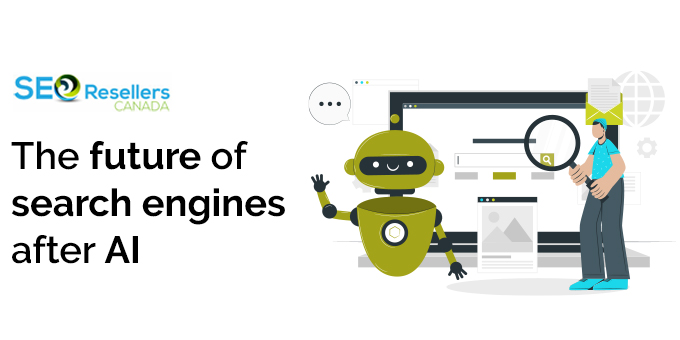
In the past few years, we have noticed how AI is used to enhance our understandings of queries and getting the right answers. Already, 97% of mobile users are employing AI-powered voice assistants. Also, one of Statista’s reports claimed there will be 8.4 billion devices with AI-powered assistants by the end of 2024.
But, it is important to note that not all searches made aim to obtain a single answer. People might want to browse multiple options as well.
For instance, if you wish to know the speed of light, you will want to obtain an approximate answer. But when it comes to buying clothes, you will see multiple choices as well. This is one of the reasons why generative AI may not be able to out-compete Google alone.
And as we all know Google is famous for evolving continuously and driving innovation. So, it will take a lot more from AI’s end to throw off the big G from the throne. And the way things are working now, we believe the rise of AI will only play to Google’s benefit. As you see, Google is already focused on using AI to deliver personal experience through Google Project Magi. Even Bing, for that matter, is using AI to deliver results on SERPs.
It is just that the explosion of the content will require search engines to enhance their server capacities, content analysis, crawlers and advanced algorithms to sort the best results.
2- What does AI mean for SEO?
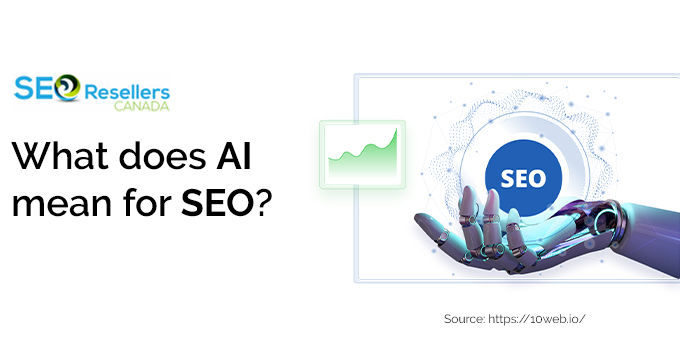
With AI coming to the forefront, SEO will get more competitive and complex.
Since AI is capable of generating huge amounts of content in a few seconds, and that, too, inexpensively, the competition for search engines will rise.
These are the two angles to this –
2.1- Generate content that is optimized for AI-driven search results
You will be required to create content that offers facts and not plain information. These could either mean creating FAQs, how-to guides or similar content types that deliver clear and concise answers.
The discussion has been ongoing, particularly regarding voice search, and is now influenced by the question of how ChatGPT will impact SEO. AI, though not generative like ChatGPT, has predominantly handled longer-term, fact-oriented responses.
2.2- Compete based on quality, not quantity
Now that AI impact on SEO has taken over, the focus should remain on quality content. And this should not be an issue, given Google has always been asking creators for the same.
However, the definition of high-quality content will change.
In the past, having factually accurate, well-written, and broadly covered content was sufficient. However, new aspects have emerged, evident in Google’s recent inclusion of “Experience” in their E-A-T principle.
3- Top AI predictions and their impact on the future of SEO
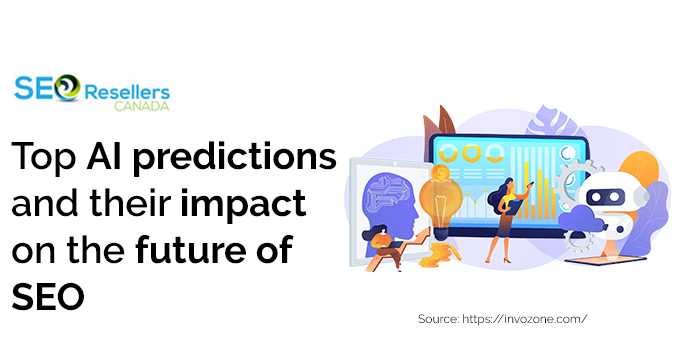
Now that we are familiar with the basics, that is, how AI has impacted SEO and search engines, let’s dive in to determine what is the future of search with AI. Let’s determine the many new things that might get introduced thanks to the AI revolution –
3.1- AI-powered search algorithms
You may know this, almost every search engine’s foundation relies upon sophisticated algorithms. They are in charge of crawling and indexing web pages and then ranking those pages based on relevance and authority.
AI-powered algorithms are highly capable of significantly improving these processes. In fact, they can make the search results highly accurate, efficient and personalized for the end user.
An excellent example of AI integration in search algorithms is Google’s Rank Brain. It uses machine learning (ML) to better comprehend the intent of a user and deliver highly relevant search results. And since AI is evolving and advancing as you read this, we can expect search engines to get equipped with similar technologies, too. This will ensure more accurate comprehension of the user queries and enhanced search results.
3.2- Improved keyword research and content optimisation
For successful SEO, focusing on content optimization and keyword research is equally important. With ChatGPT and AI, you can easily automate both of these tasks. This prompts a discussion on how does ChatGPT affects SEO. Well, AI can come in handy in identifying the semantic relationships between keywords, determining search trends and user behaviour predictions.
Besides these, AI-powered tools will help with content optimization. This means the content produced will resonate with the readers and engage them on a higher level.
AI, through user behaviour analysis, can identify top-performing content and offer suggestions for enhancement. Additionally, it can aid in creating essential on-page elements like meta tags and headings, which are vital for SEO success.
3.3- Enhanced user experience
User experience is the priority in the SEO process. Why? Well, search engines prioritise sites that deliver a seamless user experience. Thankfully, AI can come in handy here. AI can analyse user behaviour data, identify areas that need improvements and suggest personalised content. These all, in turn, can enhance user experience significantly.
For instance, AI can analyse the user preference and suggest content type that needs to be focused on. This, in turn, will lead to the development of content that the users are actually looking for and make them stay longer on your website.
Similarly, using AI-powered chatbots is an excellent way of providing instant help to site visitors. This, in turn, can facilitate customer satisfaction and overall engagement rate.
3.4- Predictive SEO
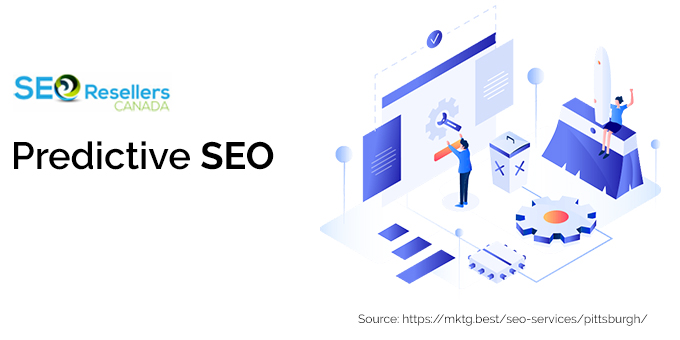
As the name might suggest, predictive SEO is when you use AI to foresee search engine algorithm updates, future trends and even user behaviour.
Using both AI and machine learning, your business can gain a competitive edge. You will be equipped to anticipate changes and adapt your SEO strategies as per the data gathered.
Predictive SEO is an excellent avenue, especially to determine trending topics and produce content that the target audience might like and read. Also, it can assist businesses identify the upcoming algorithm updates. Such insights are crucial for adjusting SEO strategies, thereby minimizing the overall impact on search engine rankings.
3.5- Voice search optimization
Voice assistants are on the rise. Apple’s Siri, Google Assistant and Amazon’s Alexa have resulted in a huge increase in voice search queries. With AI advancing on a regular basis, voice recognition technology will only evolve. This means voice search will become an essential part of the SEO process.
But in order to successfully implement voice search, you will need to focus on long-tailed keywords and even natural language processing. Why? Well, when someone uses voice search, they speak complete sentences before hitting search.
With proper optimisation of your content, you will make it easy for AI to analyse the user’s voice search. AI will be equipped to understand user intent and deliver insights on how you can better optimise your content for voice search.
3.6- Visual search optimisation
AI’s influence extends significantly into visual search, a notable domain. Platforms such as Google Lens and Pinterest Lens empower users to search for information and products by utilising images rather than text. With AI-powered image recognition, identifying objects within images becomes seamless. This technology simplifies the process for search engines to comprehend and index visual content effectively.
To harness the potential of visual search, businesses must optimize images with pertinent metadata and guarantee easy accessibility to the visual content on their websites. AI can come in handy in analysing and optimising images. This will make it streamlined for search engines to index the images and improve your site’s chance of being ranked on visual search results.
3.7- Search intent
Understanding a user’s search intent involves delving into their past behaviour and discovering the motive behind the search query. While Google has been emphasizing this, it will become even more crucial as AI’s role expands in future algorithm updates.
It’s essential to look beyond the simple search phrase and understand the problem the user aims to solve.
In terms of search intent, queries generally fall into four types:
- Navigational queries focus on specific content for a particular URL. For example, a user might type “YouTube” in the search bar to access the YouTube site rather than entering the URL in the browser or using a bookmark.
- Informational queries cover a wide range, with the primary goal being to find information. For instance, a user might type “how to grow tomatoes” or “tips for weight loss” to get information related to the query.
- Commercial queries encompass both immediate purchase intent and queries seeking information for a potential future purchase.
- Transactional queries involve actions like account creation, newsletter sign-up, or making a payment. For example, a user might type “steps to order online” to obtain information on the process.
3.8- Big data
Data-driven marketing is highly valuable as it yields results. Extensive data sets enable search engines to identify patterns that would be challenging to spot otherwise. With AI’s assistance, search engine algorithms leverage big data to recognize and capitalize on trends, distinguishing between similar users based on factors like:
- Gender
- Age
- Education
- Political affiliation
- Social media activity
- Cultural beliefs
- Profession
- Geography
- Race
- Marital status
- Purchase history
- Search and browsing history, etc.
Then, big data is swiftly used to identify user behaviour patterns, trends, and satisfaction in search results. This ensures the delivery of higher-quality results for future searches.
4- 5 strategies for content optimized for SEO in the age of AI
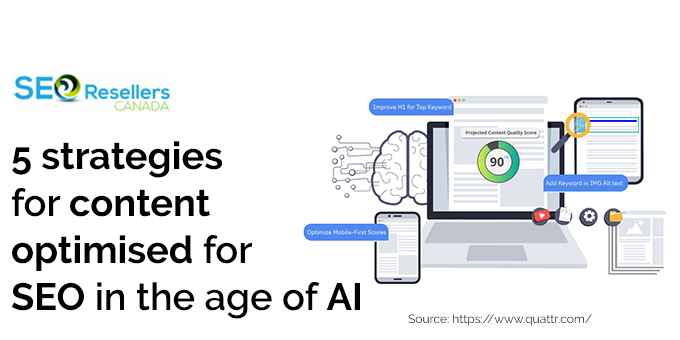
Well, the section above gave a clear idea of what is future of SEO now that AI has taken over. Let’s dive deep to learn how you can still win in your content strategy with relevant tricks and tips –
4.1- Understand your target audience
For effective SEO, prioritize crafting content that aligns with your target audience’s interests and needs. Also, avoid generic content. This is because a well-known impact of Artificial Intelligence algorithms is that they can identify and dismiss irrelevant material.
Search engines, through big data analysis, tailor search results to a specific audience. This means individuals or professionals searching will receive personalized results for the searches they make.
As AI and machine learning advance, staying updated becomes crucial for optimal results.
4.2- Create new content and data
To stand out among the AI-generated content, it is crucial to emphasize creating unique and original content. This means focusing on producing research-based content like surveys, case studies, and original research articles. They offer fresh perspectives and unique data and information.
This SEO and content marketing strategy will help you set your content apart from your competitors. You will be equipped to capture the attention of both search engines and users. This, in turn, will enhance search engine rankings and visibility.
Also, such content goes beyond what AI can currently generate, at least as per our current understanding of its capabilities in the near future.
4.3- Show that “humans” are behind the content
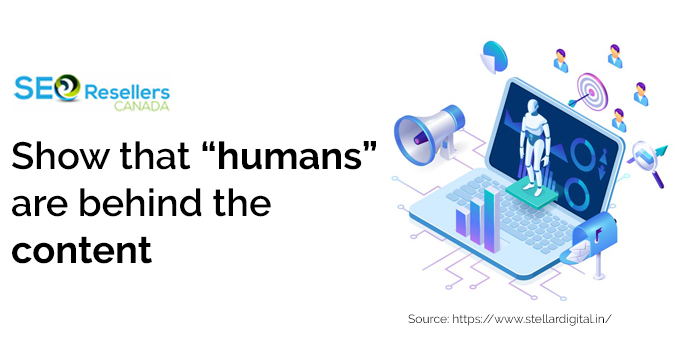
Now that most content is AI-generated, emphasising the human touch is more crucial than ever. It is crucial to show that real people, not just algorithms or machines, are the driving force.
This becomes especially vital when dealing with emotions or personal experiences, as users seek a connection with real individuals who can relate to their feelings and situations.
An excellent way of showcasing the human touch on your content is by creating personal profiles or bios of the author. It can assist in building trust with the users.
4.4- Structured data
To enhance the visibility and ranking of content in search engines, it’s crucial to utilize structured data.
Structured data provides information about a page and its content in a standardized format, making it seamless for search engines to understand and index. Structured data also enhances content performance in voice search by aiding search engines in understanding and presenting content in a natural and user-friendly manner.
4.5- Prioritize experience and user interaction
In the face of escalating content competition, where the actual substance demands less effort, SEO experts need to concentrate on crafting content that offers users a positive and engaging experience.
This content should not only be well-written, easy to comprehend, and visually appealing but should also be designed to stimulate user interaction. For instance, a search like “house addition” can be enriched with an interactive calculator, helping users estimate the cost of expanding their homes.
Creating such content demands more effort and is less prone to replication by AI-generated content. It provides your business with a competitive edge. While ChatGPT and AI can generate code, they lack the ability to create intricate tools like a price calculator without the necessary data.
Other types of interactive content include,
- Polls
- Quizzes
- And user comments
These features serve as indications to web crawlers that the content is not merely automated AI-generated material.
5- Ending note
Well, AI is undoubtedly determined to transform the future of SEO for good, answering the question, “Why are digital marketers so hyped for AI?” It will revolutionise the way businesses approach SEO and how SEO firms assist them achieve better results.
Remember, businesses embracing AI will remain ahead in the competition and eventually dominate the SERPs. If you are still questioning the authenticity of AI, it is time to rethink your decision. Stay assured that evolution is at the forefront of AI tech, meaning endless possibilities are waiting ahead. All you need to do is embrace AI trends like those listed above, and you will dominate the competition.













